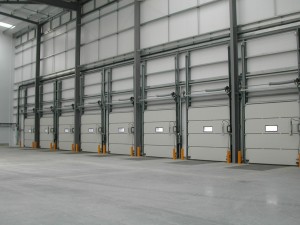Sliding glass doors are a popular choice for many homeowners due to their beauty and functionality. They allow natural light to flood into the room and provide a seamless transition between indoor and outdoor spaces. However, a common concern homeowners have about sliding glass doors is their ability to insulate sound. Many people wonder whether sliding glass doors are soundproof and whether they can effectively block outside noise. In this article, we’ll look at the soundproofing properties of sliding glass doors and discuss whether they are effective at reducing noise.
The soundproofing capabilities of a sliding glass door depend on a variety of factors, including the quality of the door, the type of glass used and the installation method. Generally speaking, most sliding glass doors are not completely soundproof, but they can significantly reduce the transmission of noise compared to traditional doors and windows.
The structure of a sliding glass door plays a vital role in its soundproofing capabilities. High-quality sliding glass doors are designed with multiple layers of glass to help dampen sound vibrations and reduce the transmission of noise. Additionally, the door’s frame and seals should be well insulated to prevent air leakage, which also helps with sound insulation.
Another important factor to consider is the type of glass used in your sliding door. Laminated glass consists of two or more layers of glass with an intermediate layer of polyvinyl butyral (PVB) or ethylene vinyl acetate (EVA), and is known for its soundproofing properties. This type of glass is often used in sliding glass doors to improve their soundproofing capabilities. It effectively absorbs sound waves and reduces the transmission of noise from outdoors to indoors.
In addition, the installation of glass sliding doors is crucial to ensure their sound insulation effect. Proper installation by an experienced professional is critical to ensuring the door fits snugly and has no gaps or air leaks that could compromise its soundproofing capabilities. Additionally, using weatherstripping and sealing around the door can further enhance its ability to block outside noise.
While sliding glass doors can provide a degree of sound insulation, it’s important to manage expectations. No door can completely eliminate all outside noise, especially if the source of the noise is particularly loud or persistent. However, a well-constructed and correctly installed sliding glass door can significantly reduce the impact of outside noise, creating a more peaceful and quiet indoor environment.
In addition to the construction and materials of a sliding glass door, there are other factors that affect its soundproofing capabilities. The surrounding environment, such as the presence of trees, walls or other buildings, can affect the spread of noise. Additionally, the orientation of the door and the direction of the noise source can also affect its ability to block sound.
It is important for homeowners to consider their specific needs and expectations when choosing sliding glass doors for soundproofing purposes. If reducing external noise is a priority, investing in high-quality, well-insulated laminated sliding glass doors and professional installation may help. Additionally, additional soundproofing measures, such as heavy curtains or acoustic panels, can further enhance the door’s soundproofing effect.
To sum up, although most sliding glass doors are not completely soundproof, they can effectively reduce the transmission of external noise and create a quieter indoor environment. The soundproofing capabilities of a sliding glass door depend on factors such as the quality of the door, the type of glass used and the installation method. By choosing high-quality doors, using acoustic glass, and ensuring proper installation, homeowners can enhance the soundproofing capabilities of their sliding glass doors and enjoy a quieter living space.
Post time: Apr-10-2024

